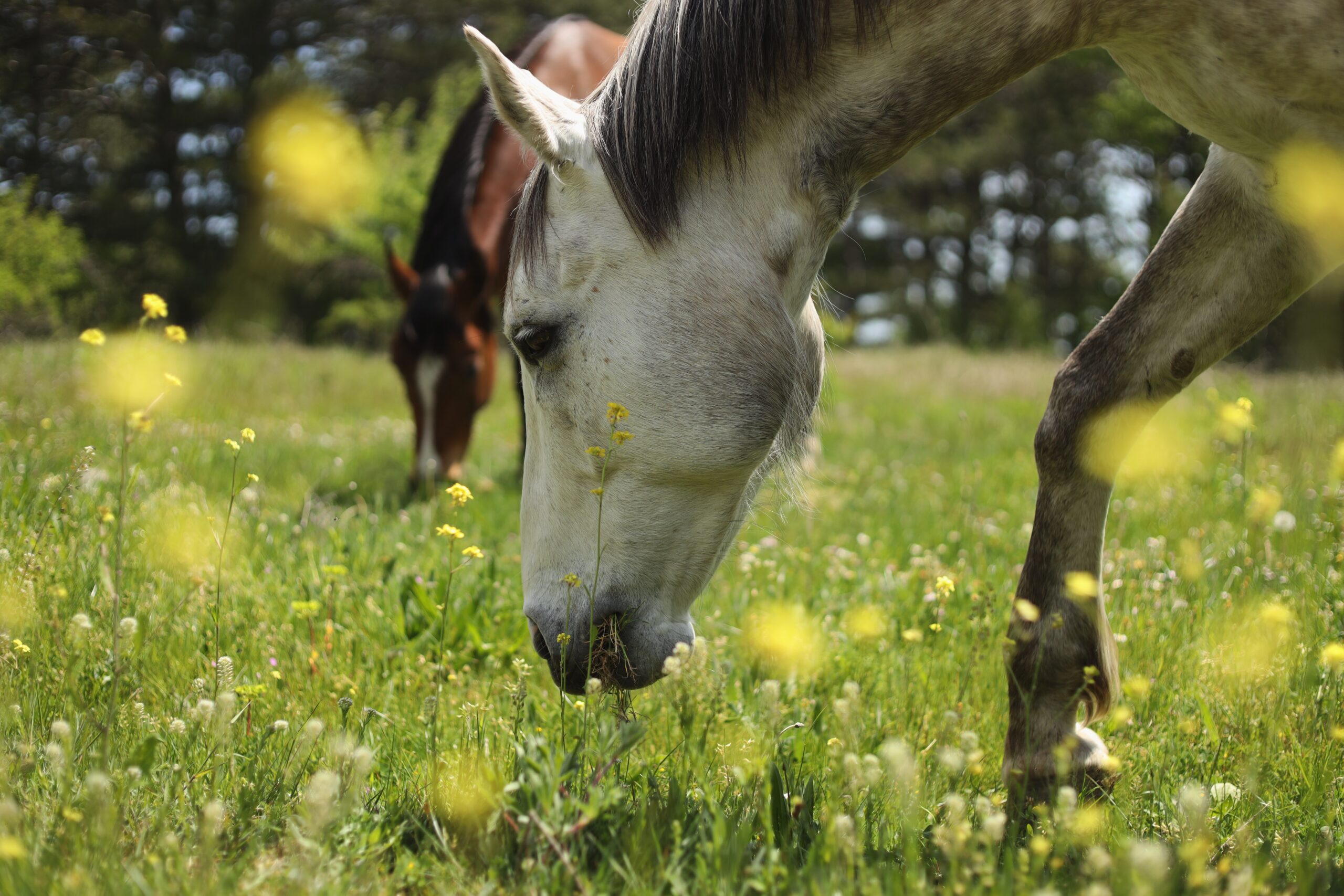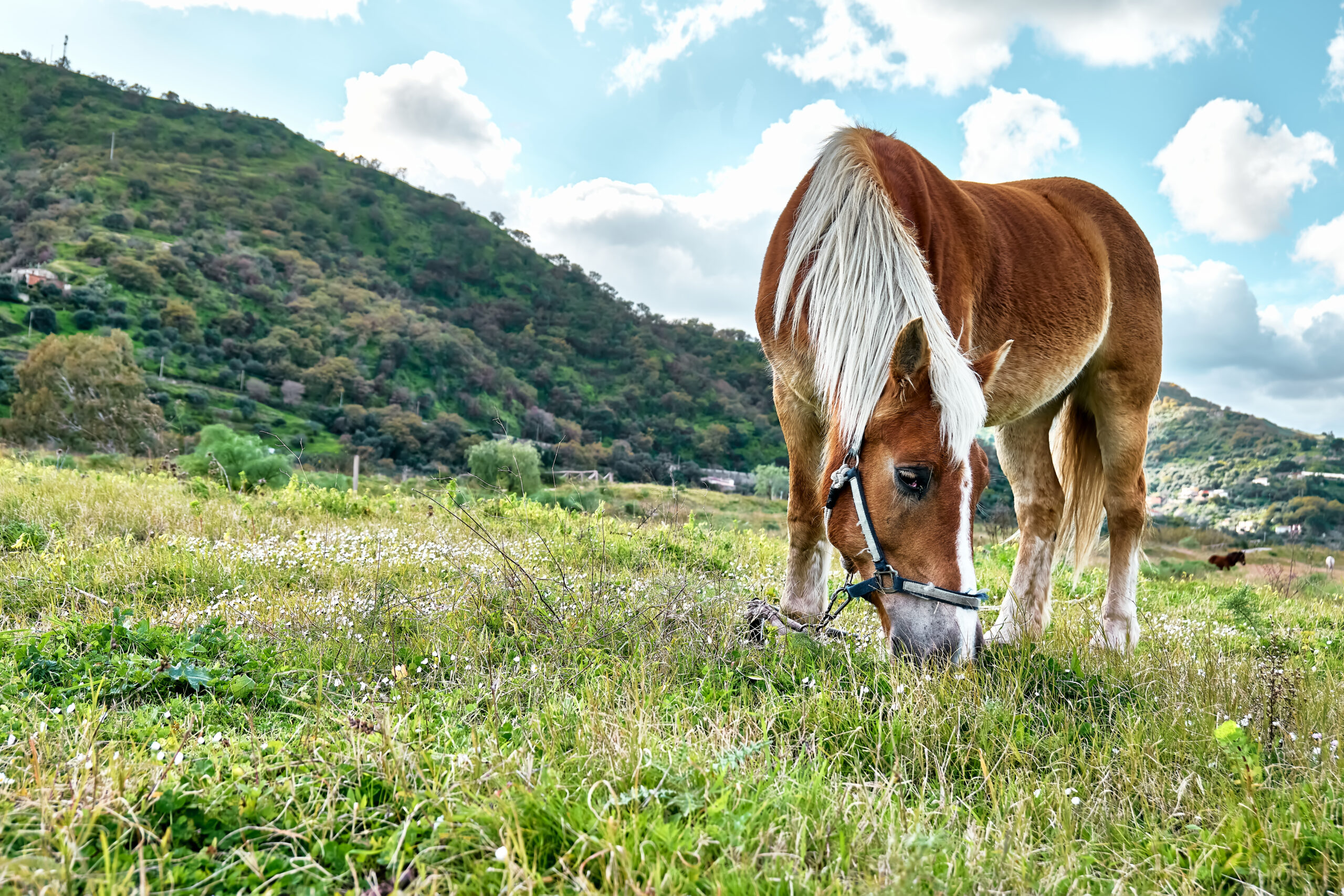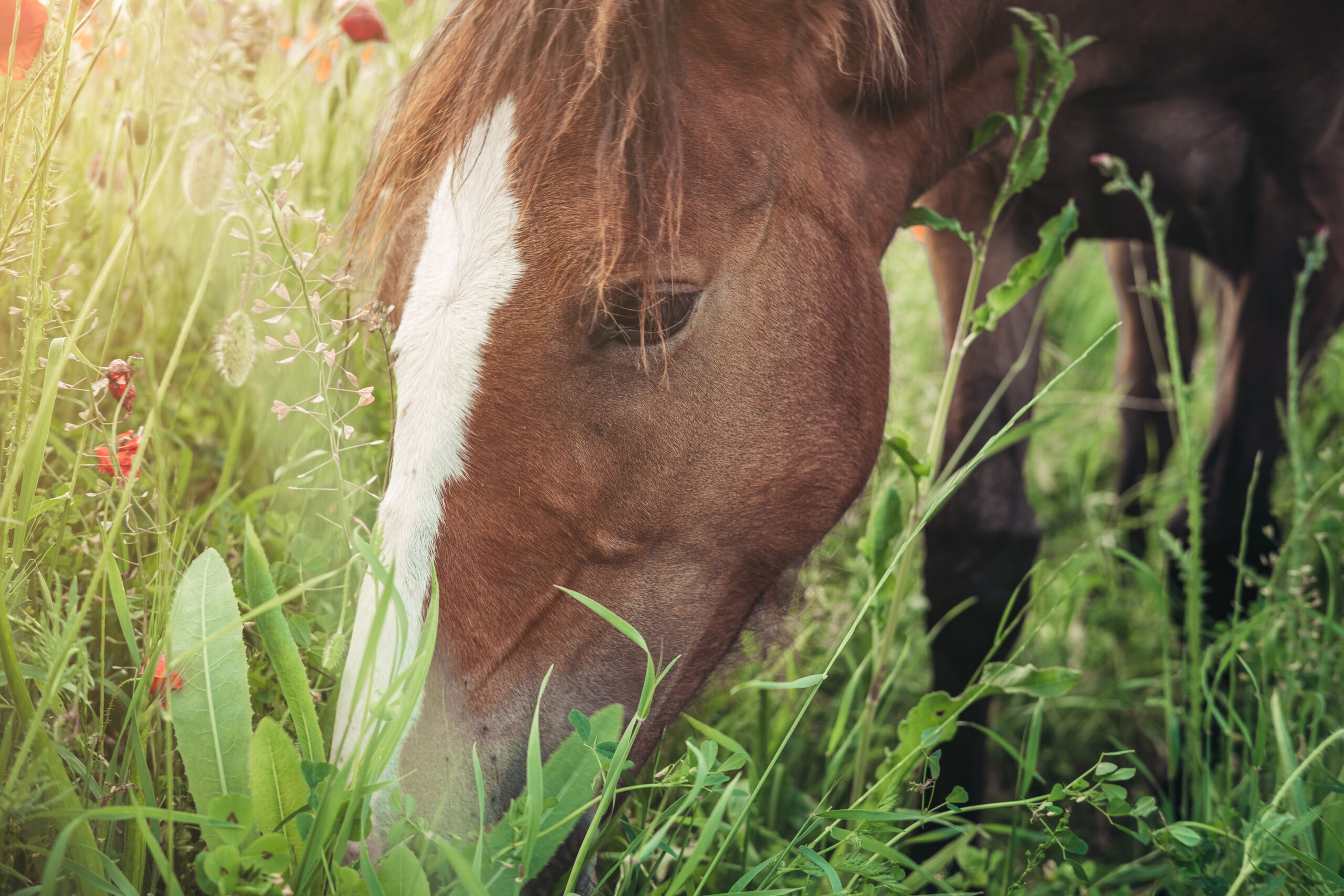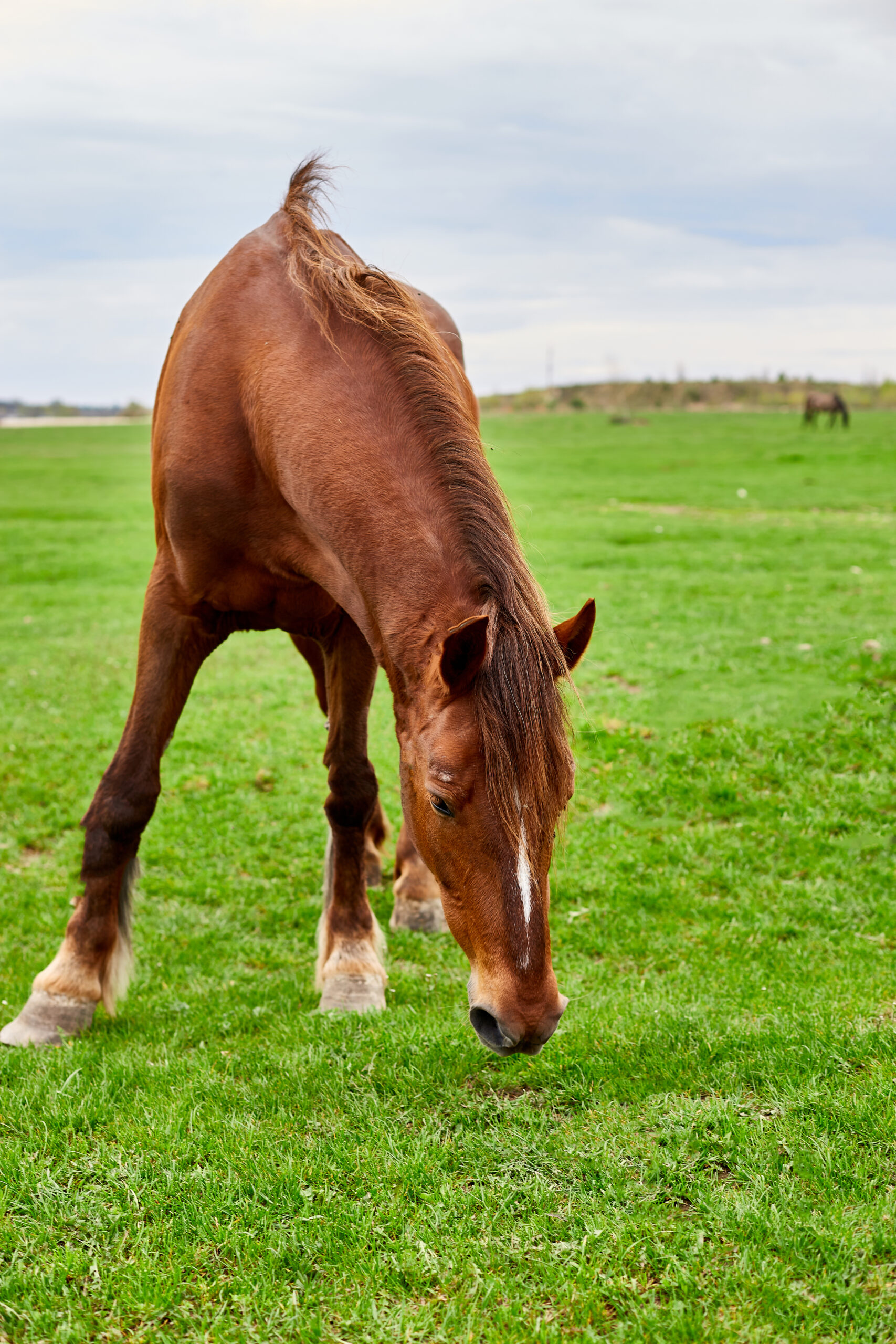When it comes to keeping our horses healthy, what they eat is just as important as how much they exercise or how often they see the vet. Many horse owners are starting to rethink how they feed their horses, leaning towards a more natural approach. That’s where a forage-based diet comes in. But what exactly does that mean, and why is it so important?
A forage-based diet is centered around what horses naturally eat: grass, hay, and other fibrous plants. This type of diet closely mimics how horses would feed in the wild, grazing throughout the day on a variety of grasses and plants. Unlike grains and concentrates, which are often fed in large meals, forage is meant to be consumed slowly and steadily. This supports their digestive health and aligns with their natural eating habits.

In this blog, we’re going to explore the benefits of a forage-based diet for horses. From supporting their physical health to enhancing their mental well-being, there are many reasons why sticking with the basics is often the best choice. Whether you’re a seasoned horse owner or new to the world of equine care, understanding the value of a forage-based diet can significantly impact your horse’s overall quality of life.
What is Forage?
Forage is a term used to describe the plant material that horses eat, primarily grass, hay, and other fibrous plants. It’s what horses are designed to eat naturally, and it makes up the bulk of their diet when they’re living in the wild or in a pasture environment. There are a few main types of forage you should know about:
Pasture: Fresh grass that horses graze on directly. This is often the most natural and preferred form of forage, offering a variety of grasses that can change with the seasons. It’s a dynamic source of nutrition, but its quality can vary depending on factors like soil, weather, and pasture management.
Hay: Dried grass or legumes that are harvested and stored for later use. Hay is the go-to forage when pasture isn’t available, such as during winter months. There are different kinds of hay, including timothy, orchardgrass, and alfalfa, each with its own nutritional profile. For instance, alfalfa is richer in protein and calcium, while timothy is a more balanced choice for most horses.
Haylage: This is similar to hay but is baled with a higher moisture content and then sealed to ferment slightly. It’s less common but can be a good option for some horses, particularly those with specific dietary needs. However, it needs to be handled carefully to avoid spoilage.
Nutritionally, forage provides the fiber that horses need to keep their digestive systems functioning properly. It’s high in fiber and low in starch and sugar, which is ideal for their slow, continuous digestion process. Forage also contains essential vitamins and minerals that contribute to a horse’s overall health. While it may not be as calorie-dense as grains or concentrates, forage is fundamental for maintaining a healthy gut, which in turn supports the immune system, energy levels, and even mood.
Natural Feeding Behavior of Horses
Horses are grazing animals by nature, which means their bodies are built for a diet that revolves around constant, low-intensity eating. In the wild, horses spend a good part of their day grazing on grasses and other plants. Their digestive systems are adapted to handle a steady flow of fibrous material rather than large, infrequent meals.
In the wild, horses graze for 16 to 18 hours a day. Their digestive systems are designed to process small amounts of food continuously. This constant eating helps keep their digestive tract moving smoothly and prevents issues like colic or ulcers. Chewing forage stimulates the production of saliva, which is essential for digestion. Saliva helps break down food and neutralizes stomach acid. When horses chew on fibrous forage, it keeps their teeth in good shape and their digestive system functioning well.
Grazing isn’t just about feeding; it also provides mental stimulation. Horses naturally seek out different types of plants and forage, which keeps their minds engaged and helps prevent boredom. This is especially important for horses that spend a lot of time in stalls or have limited turnout time. In a group setting, horses often graze together, which promotes social bonding. This social behavior is a key part of their well-being, contributing to a sense of security and happiness.
Horse smelling grass
By feeding your horse a forage-based diet, you’re mimicking this natural behavior as closely as possible. This supports their physical health and helps maintain their mental and emotional well-being.
Key Benefits of a Forage-Based Diet

Feeding your horse a forage-based diet comes with many benefits beyond just keeping them full. Let’s explain how this diet can positively impact your horse’s health and well-being.
1. Digestive Health
Horses have a complex digestive system designed for continuous intake of fibrous materials. When you feed them a forage-based diet, it helps keep their digestive system working as it should. The fiber in forage aids in digestion and helps prevent common issues like colic, which can be caused by sudden changes in diet or large amounts of grain. Forage also promotes a healthy gut flora, which is essential for nutrient absorption and overall digestive health.
2. Mental Well-being
Horses that eat a lot of forage are generally more content and less stressed. Grazing and chewing are natural activities that help keep their minds occupied. When horses have access to forage throughout the day, they have less time to get bored or anxious. This can be especially beneficial for horses that are kept in stalls for long periods. A diet rich in forage helps simulate their natural grazing behavior, contributing to better mental health.
3. Weight Management
Forage is typically lower in calories and sugars compared to grains and concentrates. This makes it easier to manage your horse’s weight, especially if they’re prone to gaining weight or if you’re trying to maintain a healthy body condition. Since forage is more filling and requires more chewing, it helps your horse feel satisfied without overloading them with extra calories.
4. Dental Health
Chewing on fibrous forage helps naturally wear down a horse’s teeth, which can help prevent dental problems. Horses need to chew to maintain their dental health, and forage provides the necessary action to help keep their teeth in good shape. Regular chewing also stimulates saliva production, which aids in digestion and helps neutralize stomach acids.
Challenges and Considerations

Switching to or maintaining a forage-based diet for your horse can be highly beneficial, but there are a few challenges and considerations to keep in mind.
Forage quality can vary greatly with the seasons. Fresh pasture may only sometimes be available, especially in winter or during droughts. When fresh grass isn’t an option, you’ll rely more on hay or haylage. Ensure that the hay you choose is of good quality free from mold, dust, and contaminants. Regularly check the condition of your stored hay and adjust your feeding practices based on your forage quality.
While forage provides essential fiber and some nutrients, it might only sometimes meet all of your horse’s nutritional needs, especially if they have specific requirements for performance or health. Horses in heavy work or with special dietary needs may require additional supplements or concentrates to balance their diet. Pay attention to your horse’s condition and consult with a vet or equine nutritionist if you need clarification.
If your horse can access pasture, managing it well is essential to ensure it remains healthy and productive. Overgrazing can lead to poor pasture quality, so consider implementing rotational grazing. This means dividing the pasture into sections and rotating your horse through them, allowing grass to recover in areas that aren’t being grazed.
When switching to a forage-based diet, it’s important to make changes gradually. Abrupt shifts in diet can upset your horse’s digestive system. Introduce new types of forage slowly and monitor your horse’s response. This gradual adjustment helps your horse adapt without causing digestive upset.
Monitor your horse’s health and condition on a forage-based diet regularly. Check their weight, coat condition, and overall well-being. If you notice issues such as weight loss, poor coat quality, or changes in behavior, it might indicate a need for dietary adjustments.
Forage is high in fiber and requires ample water to aid digestion. Always provide fresh, clean water for your horse and ensure they have constant access to it, especially if they’re eating a lot of dry forage like hay.
By keeping these considerations in mind, you can better manage a forage-based diet and make adjustments as needed to meet your horse’s needs.
Practical Tips for Implementing a Forage-Based Diet
If you’re considering switching to a forage-based diet for your horse, there are some practical steps you can take to make the transition smooth and effective. Here are some tips to help you get started:
Gradually Introduce Forage
When switching your horse to a forage-based diet, introduce the new forage gradually. Mix it with their current feed and slowly increase the amount of forage over several days or weeks. This helps your horse’s digestive system adjust without causing upset.
Use Slow Feeders
Consider using slow feeders or hay nets if your horse tends to gobble down their forage quickly. These tools help extend your horse’s time eating and mimic their natural grazing behavior. This can also help prevent boredom and digestive issues.
Consult with a Professional
If you need clarification about how much forage your horse needs or how to balance their diet, feel free to consult with a vet or an equine nutritionist. They can provide guidance based on your horse’s specific needs, age, activity level, and health condition.
Store Forage Properly
Store hay and other forage in a dry, well-ventilated area to prevent mold and spoilage. Avoid storing forage directly on the ground where moisture can cause problems. Use pallets or shelves to keep it off the floor and ensure it stays dry.
By following these tips, you can make the transition easier and ensure that your horse gets the most out of their diet.
Homeopathy for Horse Health and Digestive Problems
Homeopathy is an alternative medicine system that uses highly diluted substances to stimulate the body’s natural healing processes. While it might not be as well-known in the equine world as conventional treatments, many horse owners have found it helpful for various health issues, including digestive problems.
Here are a few commonly used homeopathic remedies for horses with digestive issues:
1.Nux Vomica: Often used for horses showing signs of digestive upset due to overfeeding, stress, or changes in diet. Symptoms might include colic, constipation, or diarrhea. Nux Vomica can help restore balance to the digestive system.
2. Colocynthis: Useful for colicky horses that experience cramping and pain in the abdomen. This remedy is often recommended when the colic symptoms are sharp and crampy and the horse seems restless.
3. Arsenicum Album: This remedy is considered for horses that have digestive issues with symptoms such as vomiting, diarrhea, or a general feeling of weakness. It’s beneficial if the symptoms are associated with food poisoning or a reaction to something they ate.
4. Carbo Vegetabilis: Often used when a horse has severe bloating, gas, or distension in the abdomen. It can help relieve symptoms of colic associated with gas and improve overall digestive function.
If you’re considering homeopathy for your horse, it’s essential to approach it as part of a comprehensive health care plan. Combining it with proper diet management, regular veterinary care, and good, stable practices can provide the best outcomes for your horse’s health.
The Bottom Line

Switching to a forage-based diet for your horse can make a big difference in their health and happiness. Forage like grass, hay, and other fibrous plants provides horses the essential nutrients and fiber for good digestion and overall well-being. It supports their natural grazing habits, keeps their digestive system in check, and helps maintain a healthy weight.
Of course, making the switch requires some adjustments. You should manage the quality of the forage, balance their diet with any extra needs, and keep an eye on their condition. But with some planning and care, a forage-based diet can be a great way to keep your horse healthy and satisfied.
Homeopathy is another option that horse owners find helpful, especially for addressing health issues like digestive problems. If you’re curious about this approach, consulting with a vet or homeopath can help you find the proper remedies and ensure they complement your horse’s overall care.
At the end of the day, whether you’re focusing on forage or considering alternative treatments like homeopathy, the goal is to support your horse’s health in the best way possible. Regular monitoring, thoughtful feeding practices, and good veterinary care will keep your horse feeling their best.
